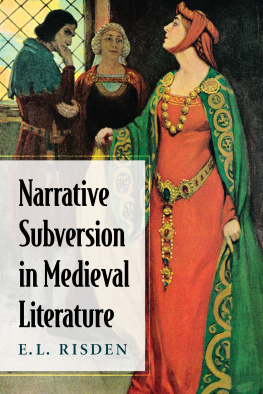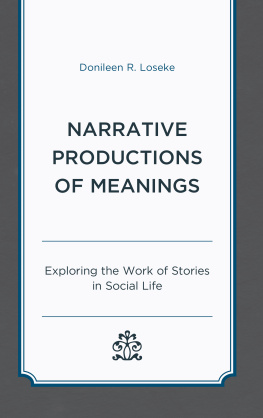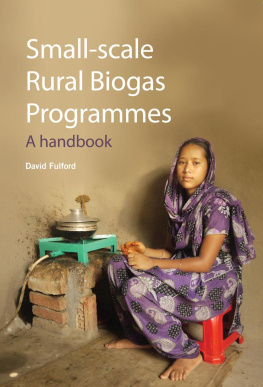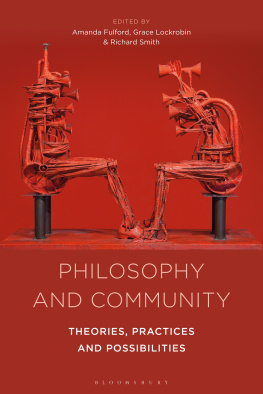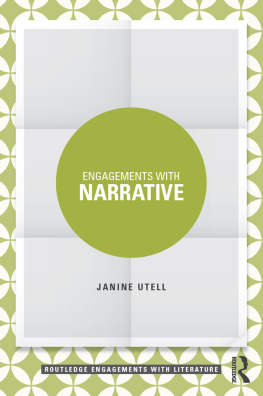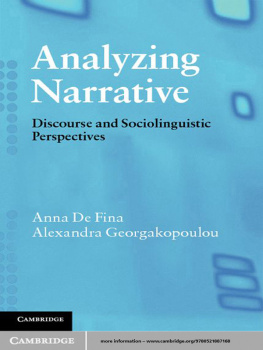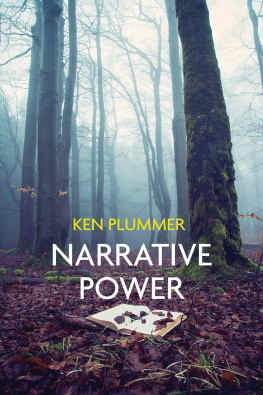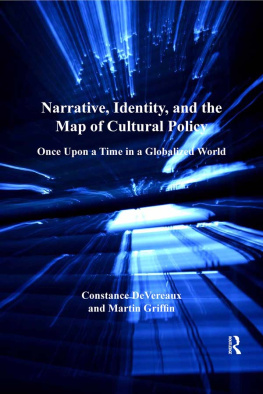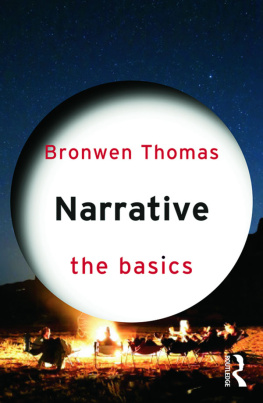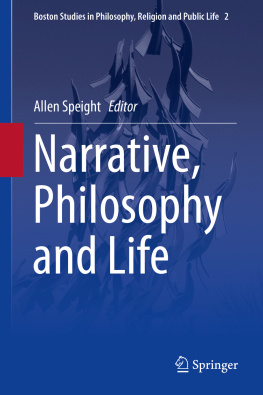The Massey Lectures Series
The Massey Lectures are co-sponsored by Massey College, in the University of Toronto, and CBC Radio. The series was created in honour of the Right Honourable Vincent Massey, former governor general of Canada, and was inaugurated in 1961 to enable distinguished authorities to communicate the results of original study on subjects of contemporary interest.
This book comprises the 1999 Massey Lectures, The Triumph of Narrative, broadcast in November 1999 as part of CBC Radios Ideas series. The producer of the series was Richard Handler; the executive producer was Bernie Lucht.
Robert Fulford
Robert Fulford has been hailed as the foremost cultural journalist in Canada. He has been a journalist since he left high school in 1950 to work as a junior sports writer at the Globe and Mail. He was editor of Saturday Night magazine for nineteen years and he currently writes a weekly column for the Globe and Mail on ideas and a monthly column on media in Toronto Life.
He has received honorary degrees from five universities and is an honorary fellow of the Ontario College of Art and Design, a fellow of Massey College, and an officer of the Order of Canada.
ALSO BY ROBERT FULFORD
Accidental City: The Transformation of Toronto
Best Seat in the House
Crisis at the Victory Burlesk: Culture, Politics, and
Other Diversions
Marshall Delaney at the Movies: The Contemporary
World as Seen on Film
This Was Expo
Toronto Discovered
THE TRIUMPH OF NARRATIVE

ROBERT FULFORD

Copyright 1999 by Robert Fulford and the Canadian Broadcasting Corporation
All rights reserved. No part of this publication may be reproduced or transmitted in any form or by any means, electronic or mechanical, including photocopying, recording, or any information storage and retrieval system, without permission in writing from the publisher.
Published in 1999 by
House of Anansi Press Limited
34 Lesmill Road
Toronto, ON M3B 2T6
Tel.(416)445-3333
Fax (416) 445-5967
www.anansi.ca
Distributed in Canada by
General Distribution Services Inc.
325 Humber College Blvd.
Etobicoke, ON M9W 7C3
Tel. (416) 213-1919
Fax (416) 213-1917
Email Customer. Serviceccmailgw.genpub.com
CBC logo used by permission
03 02 01 00 99 2 3 4 5
CANADIAN CATALOGUING IN PUBLICATION DATA
Fulford, Robert, 1932
The triumph of narrative: storytelling in the age of mass culture
(CBC Massey lectures series)
ISBN 0887896459
1. Narration (Rhetoric). 2. Storytelling. 3. Literature and society.
4. Journalism Social aspects. I. Title II. Series.
PN212.F841999 809.923 C99-931352-5
Cover design: Bill Douglas @ The Bang
Typesetting: Brian Panhuyzen
Printed and bound in Canada

We acknowledge for their financial support of our publishing program the Canada Council for the Arts, the Ontario Arts Council, and the Government of Canada through the Book Publishing Industry Development Program (BPIDP).
For Rachel Fulford and Sarah Fulford,
beloved listeners, wise storytellers
Contents
PREFACE
STORYTELLING IS THE mother of all literary arts, and anyone who reads must occasionally speculate on its enduring power. My own interest in storytelling has been more than occasional: the questions raised in this book have been central concerns of mine for many years, though I didnt realize how central until I began bringing them together for the first time. Now it seems clear that I have been gathering my thoughts on this immense subject for more than half a century.
The chance to investigate the narrative impulse at some length came when I was appointed the 1999 Massey lecturer by the Canadian Broadcasting Corporation. The Massey Lectures were founded in 1961 to honour Vincent Massey, a major patron of the arts as well as the first Canadian-born governor general. Each autumn, a writer, teacher, or public figure gives a series of five one-hour radio talks on a subject that springs naturally from his or her work. In recent years, Massey College, which Vincent Massey created, has been associated with the lectures, and the House of Anansi Press has published them.
The form is now traditional five separate but interlocked lectures, each around 7,500 words. Themes tend to be wide-ranging, such as the pathology of family life, the implications of technology, or the prospects for capitalism in the next century. I discussed several approaches with the CBC and Massey College, and in the end we settled on an exploration of storytelling. It seems to me that this crucial element of culture receives less attention than it deserves; just because it is so pervasive, we often fail to consider its sources and its implications.
Of all the ways we communicate with one another, the story has established itself as the most comfortable, the most versatile and perhaps also the most dangerous. Stories touch all of us, reaching across cultures and generations, accompanying humanity down the centuries. Assembling facts or incidents into tales is the only form of expression and entertainment that most of us enjoy equally at age three and age seventy-three.
The story links us to ancestors we can never know, people who lived ten or twenty thousand years ago. As the study of preliterate cultures demonstrates, storytelling was central to society long before humans learned to write. Millions of anonymous raconteurs invented narrative, and simultaneously began the history of civilization, when they discovered how to turn their observations and knowledge into tales they could pass on to others.
My plan when I set out to write these lectures was to look at narrative from a few unusual angles and perhaps open it to wider discussion. I especially wanted to assert the value of those unruly and unaccredited forms of narrative that arise from conversation, in particular the stories, true or untrue, that we tell about ourselves and people we know. In my view, we can profitably bring to amateur storytelling the same tools of understanding that we routinely apply to literature.
My first chapter locates the foundations of narrative in gossip, that much maligned art form. It relates gossip to sophisticated fiction, and discusses the personal histories that people concoct in the course of establishing their identity. From this beginning at the bottom of the narrative food chain, my second chapter moves to an arena of grand ambition, where Edward Gibbon, H. G. Wells, Arnold Toynbee, and others have tried to chart the course of civilization with their master narratives. My own profession, journalism, stands at the core of the third chapter, which also discusses the endlessly surprising form of literature that we call urban legends. My fourth chapter deals with the unreliable narrator, as deployed by writers such as Vladimir Nabokov and Ford Madox Ford; this subject nestles beside postmodern academic theory, each of them commenting on the other. Finally, in chapter five, as a way of relating history to the present moment, I trace one long vibrant line of romantic narrative from Sir Walter Scotts
Next page

